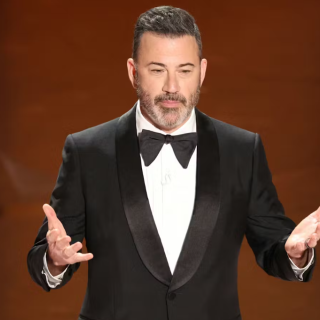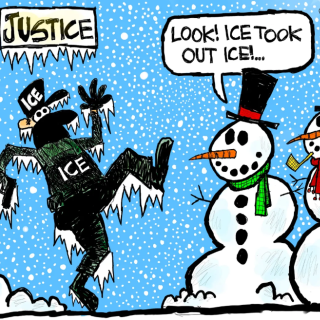What does it say about America when women or men who are sexually abused or raped are then re-victimized by the public and media? Well, and I know this personally, it says to the victim, “Welcome to the second worst nightmare of your life.”
As a female combat veteran of Iraq suffering from Military Sexual Trauma or MST, I have first-hand experience with the culture of “victim blaming” or the “second assault.” When a soldier reports rape they are forced to navigate Hell in their (often futile) attempt to win justice. This “Hell” makes it so tempting to trade the search for justice so to save your reputation and protect your personal safety. And as we know, bailing on legal justice is not just a temptation for soldiers, but for all sexual assault victims.
It is a strange paradox indeed: During a time when law enforcement shoot and kill unarmed, and unprosecuted men, in the name of justice, why does law enforcement or other figures of authority continue to attack rape victims who are seeking…justice?
I knew and served with an introverted and shy 19-year-old female soldier who was raped by another, more senior, soldier in her unit. The predator was married and would, in front of our entire unit, address all females under his command as “whores” and “sluts.”
The female soldier attempted to seek justice, but her commanding officers threatened to charge her with adultery, telling her it must have been “consensual.” In the military even if you are not married you can be charged with adultery if you sleep with a married soldier. So the 19-year-old backed off, but was soon transferred out of the unit, while the rapist eventually received his obligatory slap on the wrist.
Of the many “blame the victim” statements I heard during this entire episode, the one that stuck with me was when the commanding officer told another, “She is going to ruin his career. He's been in the army for a long time and is close to being able to retire, and this girl thinks she can just rob him of that?”
What I didn’t hear was, “She deserved it because she was wearing those skimpy desert camo pants and shirt, along with her helmet and body armor.”
After I was raped in Iraq during a time my unit was regularly engaged with the enemy, I had a commanding officer actually roll his eyes at me. He then told me I was being “overly sensitive.”
Being raped was a nightmare come to life, but nearly as terrifying was having almost everyone in my living and working circle turn on me when they found out I reported it. Every last shred of personal safety I had remaining was ruthlessly stripped from me, and I was in a combat zone. I was shunned for the rest of my deployment. The men I had fought side by side with, and who knew my dedication to the fight, suddenly treated me like I was less than trash.
What kind of person turns on a rape victim? That’s a puzzling question and difficult to answer. Perhaps an easier question is, what kind of people turn on a rape victim? Apparently a lot of people do. Like college administrators, police officers, prosecutors, health care workers, editors and reporters, perhaps even parents and family.
But why would friends and loved-ones turn on us?
During the 1960s, Dr. Melvin Lerner, a renowned social psychologist, championed his “Just World Theory,” which suggests humans have a need to believe the world is a fair and just place, and we get what we deserve. For instance, if your house is blown away by a tornado you deserved it because you chose to live in a storm-prone location. Another example is poor people are simply lazy – now try telling that to a single mother who works at McDonalds making $9-an-hour.
Bad things only happen to bad people is another way to define Lerner’s theory. Americans have a deeply ingrained belief that “you reap what you sow,” and in such a sexually charged society, it’s so easy to blame the female who was simply dressed for the summer weather. Lerner believed blaming the victim is not cultural, but instead an ingrained defense mechanism to cope with an unjust world when we want to believe so much that it is just.
Perhaps the worst aspect of re-victimization is that we have allowed it to infect our youngest, our children. When a celebrity such as Rihanna is victimized kids post on Twitter that she must have done something bad to deserve being beaten. If that doesn't terrify you for the fates of your daughters, you need to open your eyes. If children believe one of their role models “deserved” to be beaten, then they will also believe they must have deserved it, too.
Let me explain something. I never “had it coming”. I never “asked for it”; I was in uniform for crying out loud! I was not drunk or stoned. I was not flirting with anyone. Being buzzed isn't asking to be raped. A short skirt is not consent for rape. Rape is not the result of “boys being boys”. Rape is a crime and reprehensible.
Americans always think they (we) are “in control” of our fate. Remember Neocon George W. Bush and his “The Haves and Have Nots” braggadocio? Neocons are big believers in your fate is “all on you.” Is it any surprise we keep re-victimizing when one of our Presidents kept telling poor Americans they themselves are to blame for being at the bottom in a nation where upward mobility has seemingly become a myth?
Let me make this abundantly clear – Rape is a CRIME! Rape puts the “Just World Theory” on its head. The predator was in control of his or her actions. Not the opposite way around – she asked for it – as we Americans are conditioned to believe.
To the survivors I have this message. What happened to you was not your fault! Nothing you did or didn't do had the power to make the choice the assailant made for themselves. You have nothing to be ashamed of, nothing to feel guilty about, and this doesn't make you less of a person. You aren't an object. You are a survivor and you don't have to be afraid.
Gena Smith pens a blog titled Regular Fury!



